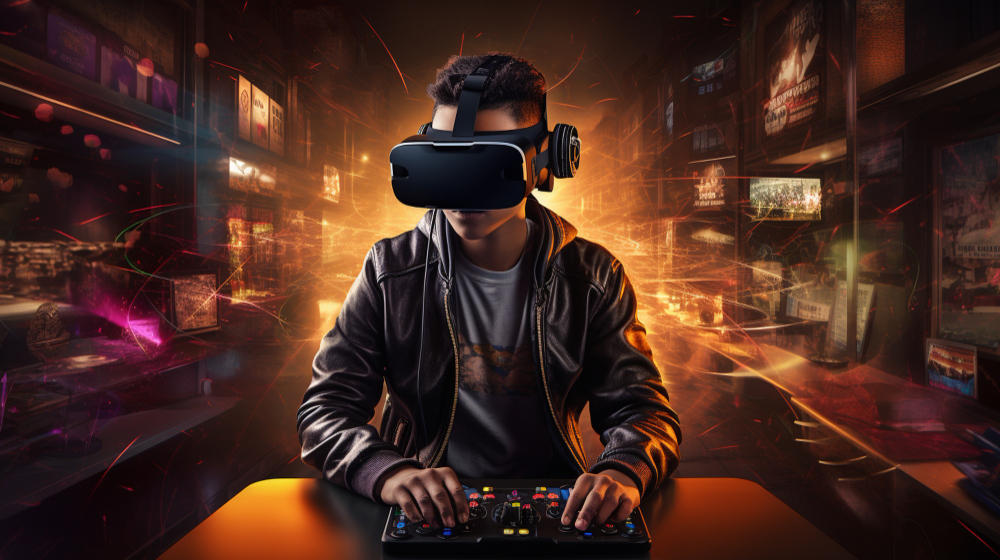When we think of sports, we often envision physical activities such as football, basketball, or tennis. These activities require athletes to engage in physical exertion, hone their skills, and compete against one another. However, in recent years, a new form of competition has emerged: gaming. Gaming, or esports, involves individuals or teams competing against each other in video games. The question arises: Is gaming a sport?
To answer this question, we must first define what constitutes a sport. Traditionally, sports have been associated with physical prowess and athleticism. They require physical strength, agility, and endurance. Gaming, on the other hand, is primarily a mental activity. It involves strategic thinking, hand-eye coordination, and quick reflexes. While gaming may not fit the traditional definition of a sport, it undeniably involves competition and skill development.
The Rise of Esports
In recent years, esports has experienced a meteoric rise in popularity. Tournaments attract millions of viewers, and professional gamers earn substantial incomes through sponsorships and prize money. Esports events are held in large arenas, with fans cheering on their favorite teams and players. This surge in popularity has led many to argue that gaming should be considered a sport.
Arguments for Gaming as a Sport
There are several compelling arguments in favor of gaming being considered a sport. First and foremost, gaming requires a high level of skill. Professional gamers spend countless hours honing their abilities, practicing strategies, and mastering the mechanics of their chosen games. They undergo rigorous training regimens and compete at the highest level of competition. Just like traditional athletes, gamers push themselves to their limits to achieve success.
Furthermore, gaming involves intense mental focus and concentration. Gamers must make split-second decisions, react quickly to changing situations, and communicate effectively with their teammates. These cognitive abilities are essential in traditional sports as well. The mental strain that gamers experience during competition is comparable to that of athletes in other sports.
Arguments Against Gaming as a Sport
Despite the arguments in favor of gaming as a sport, there are those who believe it does not meet the criteria. One common argument is that gaming lacks the physicality and athleticism typically associated with sports. Unlike traditional athletes, gamers do not engage in physical activities that require strength, speed, or endurance. Instead, they manipulate a controller or keyboard to navigate virtual worlds.
Another argument against gaming as a sport is the perception that it lacks the social and community aspects found in traditional sports. Traditional sports often bring people together, fostering camaraderie and a sense of belonging. While gaming can be a social activity, it is primarily done online, often in isolation. Critics argue that gaming does not promote physical fitness or face-to-face interaction in the same way that traditional sports do.
The Physical and Mental Aspects of Gaming
While gaming may not require the same physicality as traditional sports, it is not entirely devoid of physical aspects. Professional gamers must maintain good posture and hand-eye coordination to perform at their best. Additionally, the mental strain and focus required in gaming can take a toll on players’ overall well-being. It is not uncommon for gamers to experience stress, fatigue, and even injuries such as carpal tunnel syndrome.
The Competitive Nature of Gaming
One undeniable aspect of gaming is its competitive nature. Gamers strive to be the best, often participating in tournaments and leagues to prove their skills. The drive to win, improve, and achieve recognition is a common thread that connects gaming and traditional sports. The desire to compete and come out on top is a fundamental characteristic of both.
The Professional Gaming Industry
The professional gaming industry has grown exponentially in recent years. Major esports tournaments attract millions of viewers and offer substantial prize pools. Professional gamers have become celebrities in their own right, with millions of fans following their every move. Sponsorships from major brands and endorsements help support the industry and provide financial stability for top players. The infrastructure surrounding professional gaming is comparable to that of traditional sports, further blurring the lines between the two.
The Recognition of Gaming as a Sport
While gaming may not be universally recognized as a sport, progress has been made towards its acceptance. Many countries now issue athlete visas to professional gamers, acknowledging their status as athletes. Additionally, some universities offer esports scholarships, further legitimizing gaming as a competitive endeavor. The International Olympic Committee has even considered including esports as a demonstration sport in future Olympic Games. These developments indicate a growing recognition of gaming as a legitimate form of competition.
The Future of Gaming as a Sport
As technology continues to advance and the popularity of gaming grows, it is likely that the debate over whether gaming is a sport will persist. The lines between traditional sports and gaming are becoming increasingly blurred, with esports events drawing larger audiences and gaining mainstream media attention. It is entirely possible that gaming will eventually be fully recognized as a sport, with professional gamers competing on the same level as traditional athletes.
Conclusion
In conclusion, the question of whether gaming is a sport is complex and multi-faceted. While gaming may not meet the traditional definition of a sport, it undeniably involves competition, skill development, and intense mental focus. The rise of esports and the professional gaming industry have further blurred the lines between gaming and traditional sports. As technology continues to advance, it is likely that the recognition of gaming as a sport will continue to grow. Whether gaming is considered a sport or not, there is no denying the passion, dedication, and talent of those involved in the gaming community.






